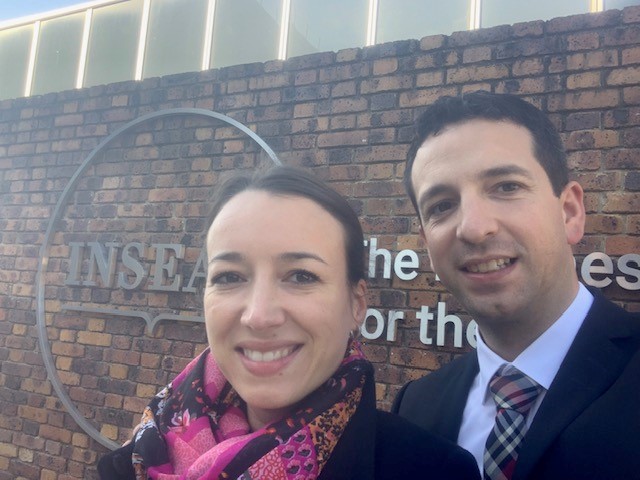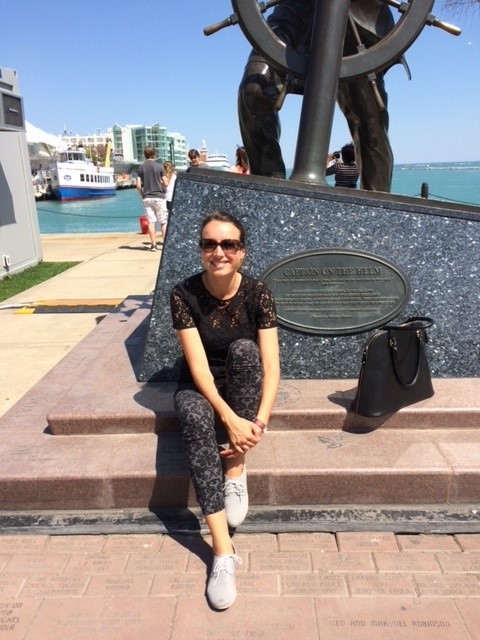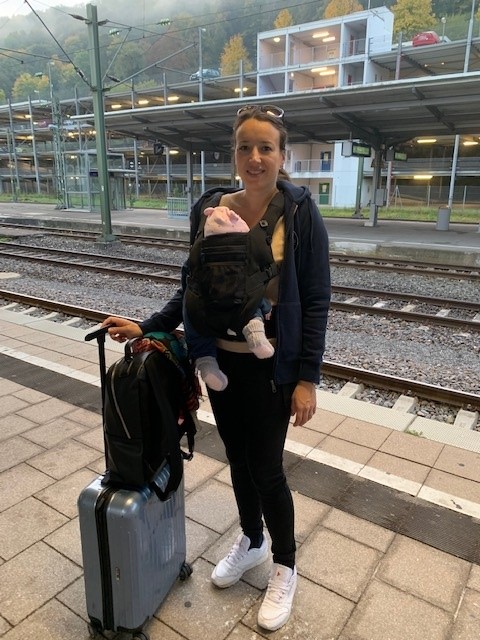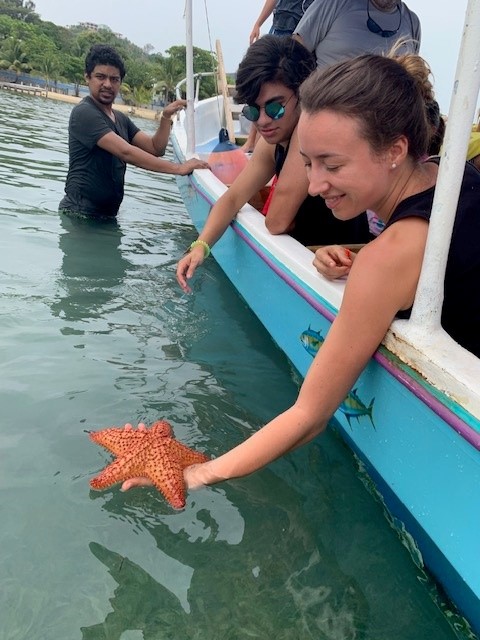INSEAD Inspiration: Building Your Career in Finance with Désirée Schaeuffele

As part of the PWN Global Inspirational Story Series, we interviewed INSEAD Executive Master in Finance (EMFin) Alumnus, Désirée Schaeuffele.
Thanks for taking part in our interview series Désirée. Let’s start with your career:
Throughout my career, I have been working in finance-related corporate, regional, and country roles with technological market leaders.
Whilst undertaking the EMFin qualification with INSEAD, I learned a lot about Corporate Finance and Capital Markets and I knew that I wanted to make a switch from working with family-owned companies to publicly listed companies.
I’m currently working as CFO for a large German Corporation, Rheinmetall, based in France.
What is your educational background?
My initial undergraduate in Business Administration and MBA qualifications were completed at Mannheim Business School in 2015.
I realised that to progress in my career, I needed to explore the possibility of an Executive education and that led me to complete my Executive Master in Finance (EMFIN) with INSEAD.
Why did you choose to study with INSEAD?
 I was looking for a highly-ranked, international business school with a global mindset that would offer an excellent education in Finance. When speaking to the members of INSEAD I directly felt connected with their approach and realised that their multi-national way of thinking aligned well with my core values. In addition, when looking at INSEAD’s founding history, I was inspired by the noble vision of its founding members – a way to connect Europe again after many decades of war.
I was looking for a highly-ranked, international business school with a global mindset that would offer an excellent education in Finance. When speaking to the members of INSEAD I directly felt connected with their approach and realised that their multi-national way of thinking aligned well with my core values. In addition, when looking at INSEAD’s founding history, I was inspired by the noble vision of its founding members – a way to connect Europe again after many decades of war.
Can you share with us what have been the main successes and challenges during your professional career?
The main success came along with the main challenge: I am currently working for a company that has been entirely dependent on the internal combustion engine and after several intense years of an onslaught of crises, we were in doubt about the survival of the company.
We needed to take some tough decisions in order to keep the company afloat and to acquire new businesses. In the end, it turned out that the pain was worth it and we acquired a substantial amount of new projects, securing the reinvention and survival of the business.
You’ve articulated your this particular challenge very succinctly, but I’m sure it felt never-ending as you were living through that period. How did you remain motivated to get a positive outcome?
In difficult situations my first port of call has always been to build a strong team, working closely together and establishing a culture of trust. In order to make this happen communication and transparency are key. We focused on “low-hanging fruit” to demonstrate some quick successes and the organisation could see that we were on the right track. Quickly establishing this level of trust meant that we had more autonomy to get the job done, which was extremely motivating for the team. I think that’s what kept me moving forward.
You’ve talked about the importance of teams. Aside from that, what external networks are you part of and how have they played a role in your professional growth and development?
During my career, I established very strong ties with current and former colleagues and supervisors. These people have facilitated and enabled my growth within and across organisations. Having consistent feedback from trusted sources is critical to personal development. I encourage anyone reading to build your own personal boardroom around you.
Besides my networks with current and former organisations, I am an INSEAD Alumni and also an alumnus of Mannheim Business School. Being able to exchange with peers in these networks is very enlightening since they are outside of my day job, and the corporate framework. This diversity of thought means not only do I get input from highly skilled people, but I also get to see things from an entirely new perspective.
One thing our PWN community is always interested to learn about is work/life balance. How do you manage yours?
 Prior to having a family I balanced life well. For me, that meant focusing on my career and education and balancing those activities with travelling and encounters with friends.
Prior to having a family I balanced life well. For me, that meant focusing on my career and education and balancing those activities with travelling and encounters with friends.
Nowadays, I have much less free time, but I enjoy spending as much time as possible with my husband and daughter.
One thing that has helped with this is the reaction of the world in the post-Covid era, where many companies have set remote work as a new standard. This helps me to manage work and family life. In addition, we took the decision to hire an au pair to help us out with our 7-month-old daughter. I know that this is not an accessible solution for everybody, but I can honestly say that it has been a game-changer for us – allowing me to resume my career, whilst still being able to spend quality time as a family.
Can you share with us your three top tips for being a great leader?
- Be humble – every day is a learning day – whether you are learning from your senior leaders, your peers, or your children, knowing that you don’t have all the answers can be strangely liberating.
- Be a team player – as a famous African proverb says “If you want to go fast, go alone, if you want to go far, go together”.
- Be transparent – for me, to be a great leader, you have to show up as your authentic self with open and honest communication at all times
Do you have a favourite self-help book/blog/YouTube channel/website?
 Yes, in fact, I have two: The Laws of Human Nature and The 48 Laws of Power, both by Robert Greene. There are many moments when I feel like I do not understand human beings or what is going on – these books are great anchors to help me navigate the chaos!
Yes, in fact, I have two: The Laws of Human Nature and The 48 Laws of Power, both by Robert Greene. There are many moments when I feel like I do not understand human beings or what is going on – these books are great anchors to help me navigate the chaos!
Do you have any advice that you could share with our community members who wish to improve their leadership competences?
I learned that I had to adjust my leadership approach to the culture that I was working in. Different cultures require different management styles. For example, in France the culture is more hierarchical, and in Denmark it is really flat. When changing countries, It is important to know what culture you are working in. There are books about that very issue – I can recommend Erin Meyer’s “The Culture Map”.
Désirée, thank you so much for sharing your thoughts with us! We wish you all the best in your onward journey.
Editor's note: As we make the final edits to this article, Désirée had just secured the role of CFO with Sto SE & Co. KGaA. CONGRATULATIONS!!
If this article has inspired you, and you'd like to advance your career with an Executive Master in Finance, speak to an INSEAD EMFin representative, today, by clicking on the banner below.
Co-written by: Désirée Schaeuffele, INSEAD Alumnus and Rebecca Fountain, Marketing Consultant, PWN Global
Date: May 2023

